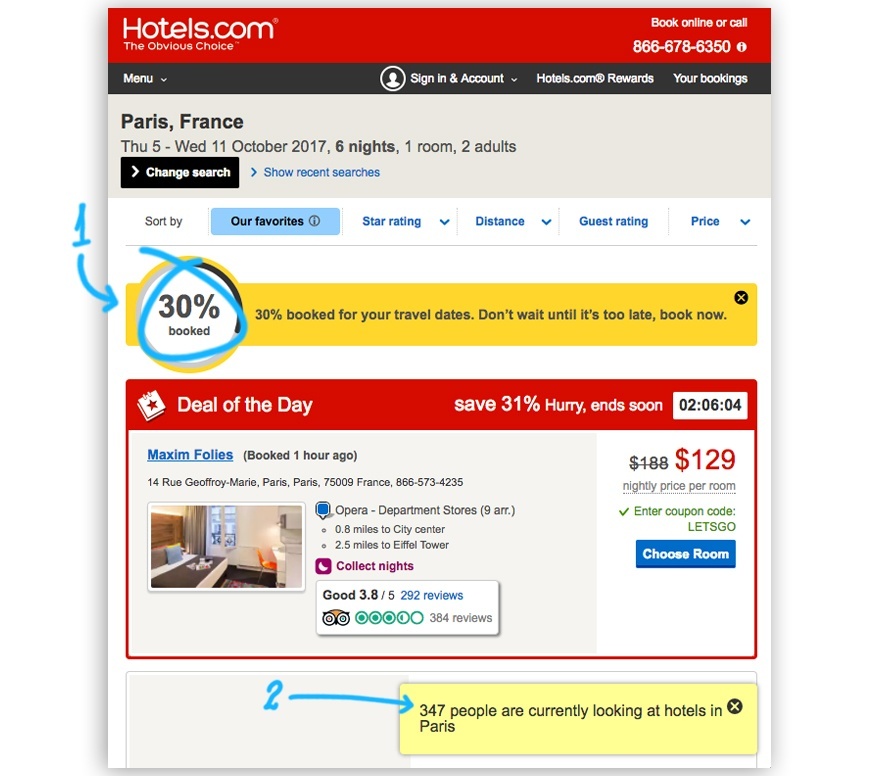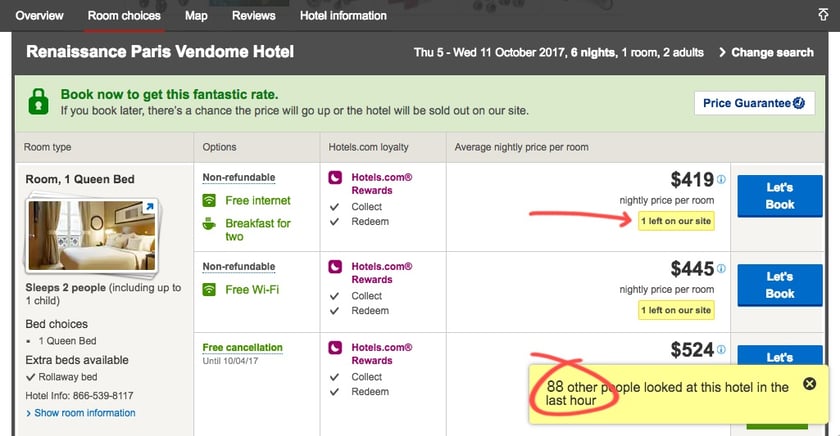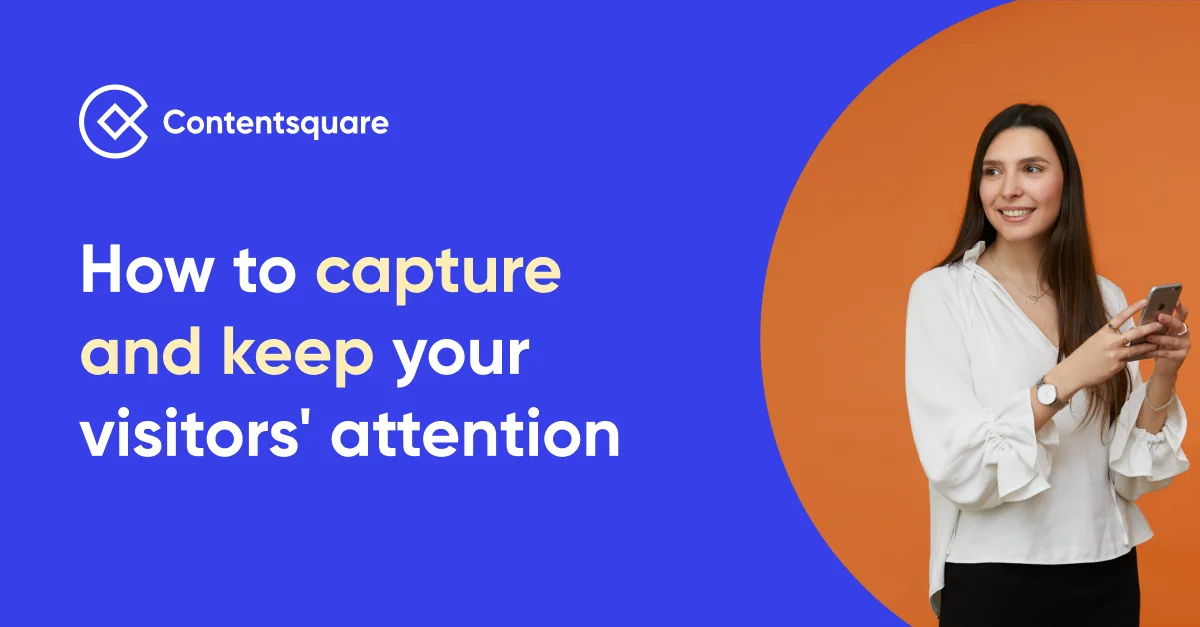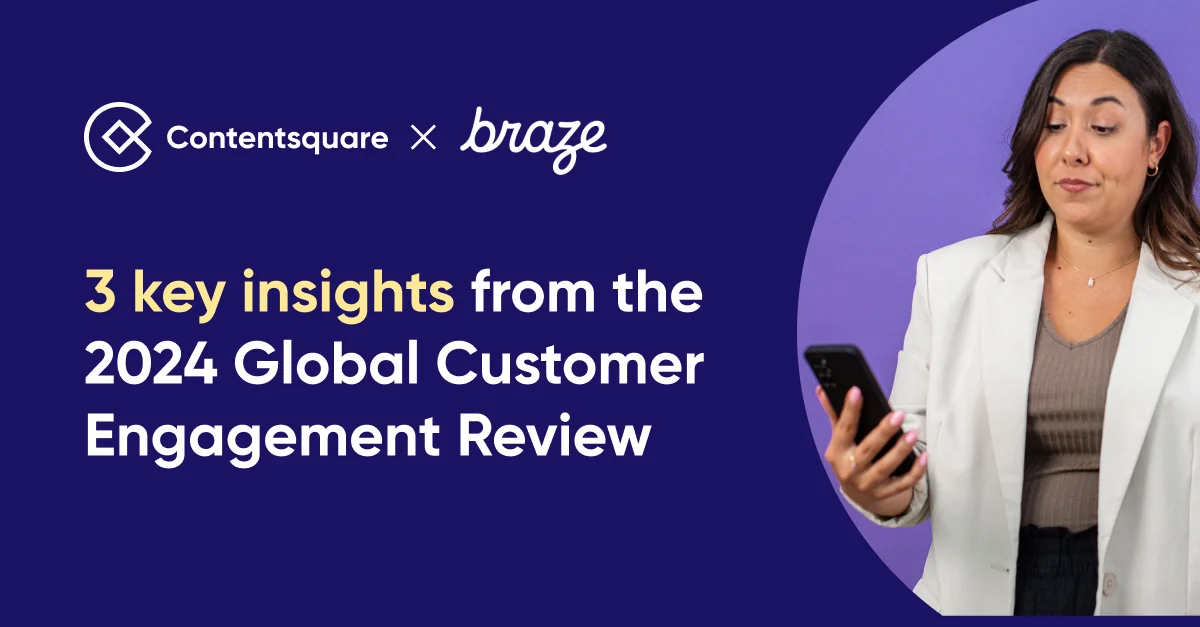In the UX Spotlight series, I post weekly on UX features that impressed me online, and are great examples and inspiration for anyone looking to enhance their digital user experience.
For booking/travel sites like car rentals or flights, it can be difficult to set your brand apart from the others. Many offer the exact same services at similar or identical price points, and do not own the products or properties themselves, so the only way to set their site apart is through a superior and unique user experience.
This week I highlight the way hotels.com creates a strong sense of urgency by pitting customers against one another in competition for a limited supply of rooms. This friendly race to the finish line (or booking confirmation) creates a powerful fear of loss and coinciding conversion lift.
The UX Element: Once a date and location are input, the category page has multiple pieces of messaging that subtly (and not-so-subtly) create a sense of urgency. First, there’s a banner at the top of the page that informs shopper that 30% of the city’s (in this case, Paris) hotels are booked for the chosen dates. Next, a popup in the lower right tells the customer that there are 347 other people browsing Paris hotels at that very same moment, which leverages both natural envy for what others have and fear-of-loss to light a fire under shoppers. Finally, individual property listings boldly display the limited number of rooms left.

The Impact: The evolution of internet shopping has hurt sense of urgency overall, because shoppers can’t physically see that inventory is running low, nor can they see other customers in the store walking around with an item that suddenly seems desirable due to its popularity. Thus shoppers often dawdle, comparison-shopping or delaying booking for extended periods because they feel they have all the time in the world. Hotels.com creates urgency online by pulling back the curtain and showing who else is in the store. The race begins in the first phase of a search, and increases in intensity as shoppers get closer to product pages. This both makes products more compelling because others are interested in them, and gives customers a reason to book quickly and with their service: if they don’t, the deal could be gone. 88 prospective buyers with only 1 room at the lowest price is a stressful situation for a shopper, but an advantageous one for a seller. It creates an intense sense that if the customer doesn’t book at that moment, 88 other people are ready and willing to do so, and that if they wait and return later, the room they wanted will no longer be available.

There could even be a multiplier effect when it comes to customers looking to book high-end properties. A ContentSquare focus group of luxury brand shoppers found that 13% of luxury customers had in-depth shopping experiences on their first visit, visiting 6 or more product pages, compared to only 5% of non-luxury shoppers. Furthermore, high-end shoppers are more likely to convert on their first visit then conventional customers. Tapping into this “compulsive” tendency of luxury shoppers by fanning their sense of urgency to book an exclusive and sought-after property could have explosive sales results.
TAPPING INTO THIS “COMPULSIVE” TENDENCY OF LUXURY SHOPPERS BY FANNING THEIR SENSE OF URGENCY TO BOOK AN EXCLUSIVE AND SOUGHT-AFTER PROPERTY COULD HAVE EXPLOSIVE SALES RESULTS.
The Takeaway: UX opens many doors to differentiating your brand. Where you might not be able to change a product or price, you can always optimize the way you present the transaction to achieve a powerful effect. By carefully tracking your customer journey, you can see exactly which types of messaging shorten the time between entering a site and check-out or increase conversion overall. You can also see if showing a lower number of other shoppers for a less popular destination has an effect opposite of the one desired. It could be that selective and personalized application of tools like these is a superior strategy.
I am always on the lookout for UX innovation. If you come across a digital experience that stands out, please send it over to pola.zen@contentsquare.com




